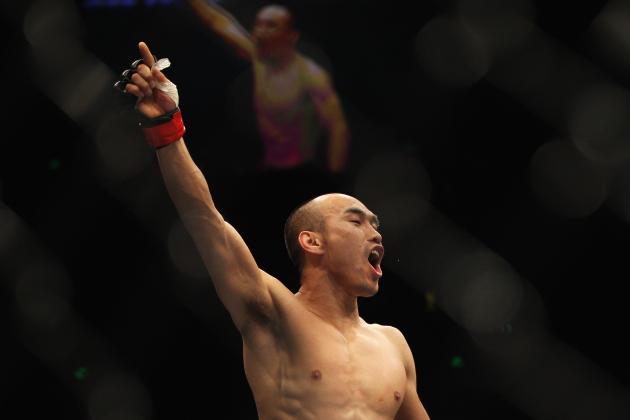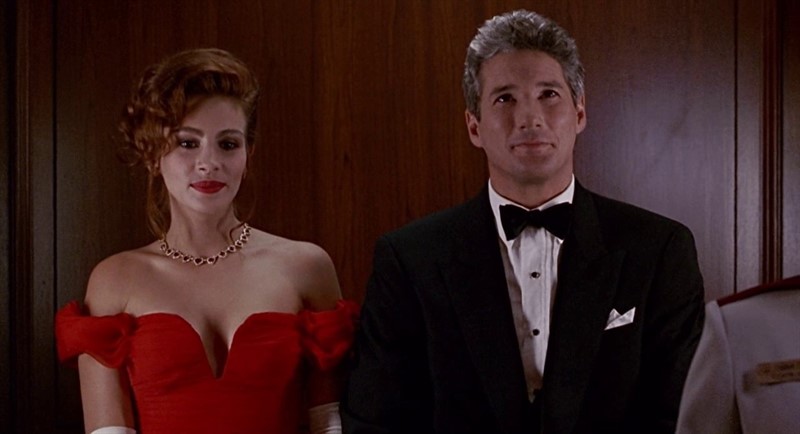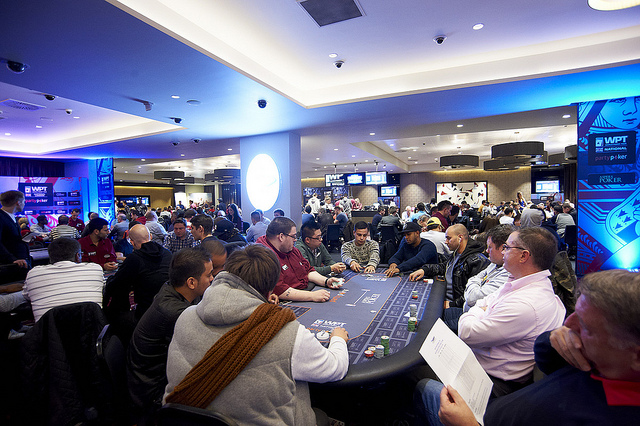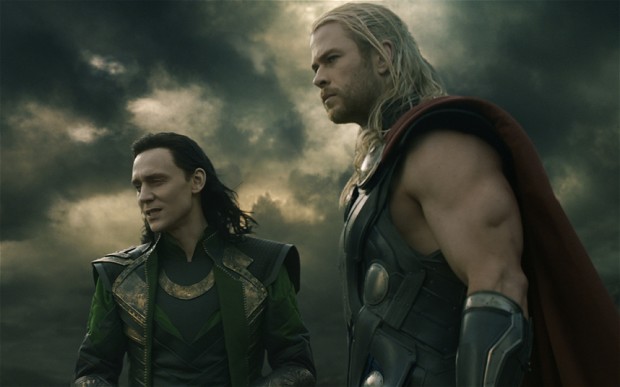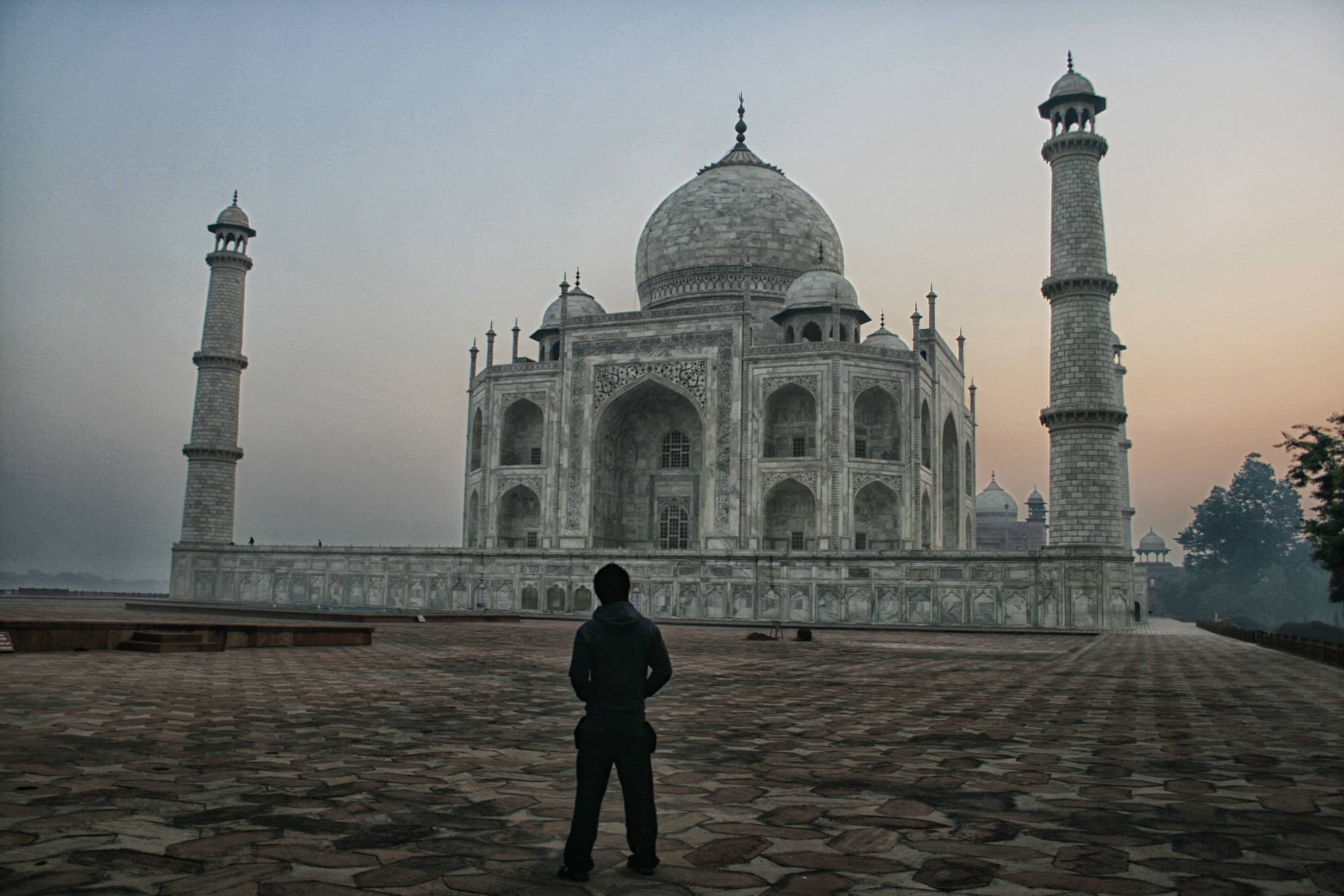
![]() MMA has come a long way in the past few years. From the early days of Royce Gracie defeating all challengers, and the controversy over the violent nature of the competitions, MMA has evolved to become one of the fastest growing and most lucrative sports in the world. UFC has risen to become a behemoth, with pay per view revenues rivalling both boxing and professional wrestling, eating up and absorbing smaller promotions along the way. Technically, the sport has evolved to incorporate a number of different styles, which means the modern MMA fighter has to be a well rounded athlete with a sharp tactical mind if he wants to become one of the top competitors. With MMA performing strongly not just in the US, but in the international markets such as the UK as well, the question that has been hovering around the sport for a while now is “why aren’t the Chinese involved?”.
MMA has come a long way in the past few years. From the early days of Royce Gracie defeating all challengers, and the controversy over the violent nature of the competitions, MMA has evolved to become one of the fastest growing and most lucrative sports in the world. UFC has risen to become a behemoth, with pay per view revenues rivalling both boxing and professional wrestling, eating up and absorbing smaller promotions along the way. Technically, the sport has evolved to incorporate a number of different styles, which means the modern MMA fighter has to be a well rounded athlete with a sharp tactical mind if he wants to become one of the top competitors. With MMA performing strongly not just in the US, but in the international markets such as the UK as well, the question that has been hovering around the sport for a while now is “why aren’t the Chinese involved?”.
It does seem somewhat strange, considering China’s rich cultural heritage in martial arts. With the historical development of hundreds of different fighting styles for both men and women, China would logically be a place where MMA would thrive. However it has been hard going establishing the sport in the area. Firstly there’s a shortage of viable athletes – most of the top young sportsmen are hand picked at school to go through a national sports program which has produced a string of champions. Secondly there’s the problem of trainers. Brazilian Ju Jitsu is considered a vital part of any MMA training, however there are no top instructors in the country. The UFC’s first chinese fighter, Tie Quan Zhang, is the highest ranked BJJ practitioner in China, with a brown belt.
Looking at those two reasons, its logical to examine a little bit of the history of Chinese Kung Fu. There have been many legendary martial arts practitioners over the centuries, mostly played by either Jet Li, Jackie Chan, or Donnie Yen in martial arts movies. As we know, there are many styles, all of which have roots in different areas. There are a few key common denominators though. Most martial art masters will tell you that the goal of martial arts is for self defence, and to achieve mastery of the body and the mind. Put simply, the more you know, the less you fight.
Then there’s the traditions. A fair few Martial Arts practitioners view MMA competition as a legal way for thugs to beat each other up, and not an true application of the principles of Martial Arts. Technically, many masters jealously guard their own techniques, and emphasise the mastery of their own styles. This means that there has been very little evolution in Chinese techniques over the last few hundred years. The most famous challenger to this status quo was Bruce Lee, who was ostracised for his evolutionary approach to Kung Fu, and was famously bullied by the martial arts community when he started teaching Wing Chun to non Chinese people in San Francisco. Sadly, he passed away at a relatively young age, meaning that although he was able to influence a younger generation, he was unable to make a significant impact on the wider Chinese martial arts community. Since his death, there hasn’t been another to carry on his vision of evolving the traditional styles.
The Communist Party in China also have to take a fair portion of the blame. During the Cultural revolution, the Communist Party banned martial arts for a period. They then attempted to nationalise it, forming the All-China Wushu Organisation in 1958. The Chinese State Commission for Physical Culture and Sports took the lead in combining common elements from various styles into the Wushu that is known today, which is a pretty but ineffective set of techniques that is performed like gymnastics. Even the duel events in Wushu are often choreographed beforehand, akin to a sport like synchronised swimming. This kind of development was the complete opposite of what was happening around the world, as other countries evolved martial arts to become more suited to actual competition. The Brazilians and Japanese took Judo and Jujitsu to a new level by integrating techniques from wrestling, the Russians developed Sambo as a hybrid, the Israelis developed Krav Maga, the Koreans evolved Tae Kwon Do and so on. More recently, Lyoto Machida, a UFC veteran and a former light heavyweight champion, has developed a karate style that has proven to be highly effective.
MMA Events
The first MMA promotion to be formed in China was called The Art of War Championship, although the promotion was not recognised on a national level by the Chinese government. Not to be confused with the American promotion of the same name, Art of War ran 15 events between 2005 to 2009, however there is precious little information about the promotion, and the majority of competitors would be seen as middle of the road or lower level MMA fighters. Indeed the infamous Rolles Gracie won two matches in Art of War events. Following them, an ambitious businessman called Joel Resnick founded the Ranik Ultimate Fighting Federation (RUFF) in 2011. Going through 5 years of red tape to get the a stamp of approval from the Wushu Administration of China, RUFF has the first ever nationally recognised MMA Championship belts. RUFF then staged a 7 event series to determine their champions in different weight classes, all of whom earned an unprecedented 1mil RMB (approx £100,000), a huge prize by Chinese standards. RUFF’s roster is almost completely chinese, rounded out with a couple of eastern based foreign competitors. The season culminated in February, and subsequently the style of RUFF was changed to be more like the traditional UFC format, with fighters aiming to challenge for championship belts.
Alongside RUFF another promotion has been formed called the Ultimate Fight Alliance (UFA), with less ambitious goals. However both promotions have struggled to promote themselves in China for various reasons. Both are unable to gain any significant TV coverage – the lack of knowledge about the sport means that TV officials are reluctant to put MMA on their broadcasts.. Zhao Xuejin, a sanshou coach who trained Tie Quan Zhang, has been trying to develop MMA fighters in China for the past few years, has gone on record as stating that there is just not enough money in the sport to be able to buy significant TV coverage.
UFC has been trying to break into China for a while as well, although government approval has eluded them. Establishing an office in Beijing in 2010, they estimate that UFC has become a growing brand amongst the Chinese, with roughly 15% of the population aware of the name. UFC has also been bragging about scheduling their first promotion in China in November 2012, although this is a aggrandization of the truth – the event was held in Macau, which is a Special Administrative Region of China (similar to Hong Kong), and isn’t actually run by the Chinese government. For comparison, it would be like saying Puerto Rico counts as the US, or calling the Falkland Islands part of the United Kingdom.
To their credit, the UFC was able to film a chinese edition of their popular reality show, The Ultimate Fighter. TUF: China featured the aforementioned Tie Quan Zhang as a coach, with American Vietnamese legend Cung Le as head coach. The show aired on Chinese television and averaged around 6million viewers per show, but wasn’t without it’s problems – Le has gone on record as saying that the show was over zealously edited by Chinese producers, particularly during segments which made Chinese coaches or fighters look bad. He did however praise the quality of the contestants, stating “I realised that athletes in China pick up fast, in six weeks, they got the game….they were really good martial artists.”
I spoke to UFC trainer and former Ultimate Fighter competitor Mike Dolce a few months ago, and he was very positive about the future of UFC of China. “China has a deep history of Martial Arts, but not Mixed Martial Arts. The Ultimate Fighter China had more viewers than the TUF series in the United States. It’s our job to educate them about what the sport it, and enable the younger generation to learn about it.” he stated.
“Tie Quan Zhang doesn’t have the greatest record, but neither do most top guys,” Dolce explained to me. “Even someone like Randy Couture has a large number of losses in his career (19 to be exact), but is considered to be one of the top fighters in UFC history. Anderson Silva, Jon Jones, Georges St Pierre, all of them have multiple losses on their record. It’s easy to look at record, like in boxing, but the difference between MMA and Boxing is that the two best fighters in their weight class will always fight for the title. Floyd Mayweather Jnr is a great fighter and he does fight tough guys, but he gets to choose his opponents and can protect himself from losses.”
“Just because you don’t have a great record, that doesn’t mean you’re not a great fighter.”

[youtube id=”h5UrVqiXTWs” width=”620″ height=”360″]![]()
Since we already discussed Special Administrative Regions, what about those areas of Asia where there are significant Chinese populations? Hong Kong did sport one promotion, the Legend Fighting Championship, which started in January 2010 and held 11 events in both Hong Kong and Macau. Fighters came from a variety of countries including Japan, Korea, China and New Zealand. Singapore is the home of one of the most famous academies in Asia, Evolve MMA, which has produced Rafael Dos Anyos and Shinya Aoki. ONE Fighting Championship, which aims to be the largest promotion in Asia, also started out of Singapore, but has also held events in Indonesia, Malaysia and Manila, bringing MMA to a whole new Asian audience.
The Future
What does the future hold for MMA in China? Even though fledging MMA promotions are starting up, the main problems of awareness and government approval are still apparent. Even with estimates of 15% of the population recognising the UFC brand, that doesn’t equate to an actual in depth knowledge of the sport. The other difficulty is with China’s National Sports Program – since MMA is not an Olympic sport, it cannot be quantified in terms of results and medals to the Administration. This means that they will not sanction and fund any training for it, which in turn makes it impossible to hire decent coaches. Anyone learning MMA in China does it in their spare time, and there is little potential to actually make a full time career out of it. Although there are efforts to find other routes – the aforementioned Legend promotion in Hong Kong got around this this by forming an alliance with Zhao Xuejin, and sending top BJJ coaches to work with potential MMA fighters in China. Zhao, who first saw the potential of converting Sanshuo martial artists to MMA, has become the godfather of MMA in China, and his plan is to use promotions like Legend and RUFF to train up fighters who can eventually become UFC worthy.
Going back to the development of Martial Arts, it would be great if an MMA fighter could be produced who is highly skilled in what is now the traditional “MMA” route, with expertise in Muay Thai, Wrestling and BJJ. What would be more ideal however, is if someone can actually develop a way of integrating Chinese martial arts into an effective style for the MMA ring. It’s important to note that this isn’t necessarily the ultimate goal – no doubt it would be good for the evolution of martial arts, but as a purist I feel that original principles of mastery of body and mind should not be neglected in the drive to produce a viable competitor for MMA.
What China lacks is an MMA star, someone who can be the equivalent of basketball player Yao Ming. After Yao Ming made his debut in the NBA, basketball became the fastest growing sport in China on the back of national pride. So far, Tie Quan Zhang has been an underwhelming performer in UFC, but he has shown that it is possible for Chinese fighters to reach the top promotion. If a Chinese fighter is produced who can go toe to toe with the best on offer in UFC, the sport will likely explode in popularity, and the Chinese government will be forced to take notice of it. With a population of 1.2billion, that might happen sooner than we think.

